Interest rate
July 2025 Interest Rates of 5-year Bangladesh Sanchayapatra under National Savings Scheme
The National Savings Scheme has introduced important revisions across all categories of savings certificates. Among them, the 5-year Bangladesh Sanchayapatra has undergone a key update regarding its profit allocation framework. Effective from July 2025, the revised structure outlines annual return rates. These rates are set both at maturity and for early encashment, based on the scale of investment. Let’s delve into the revised July-December 2025 profit structure of the 5-year savings scheme.
5-year Bangladesh Sanchayapatra's Interest Rates & Profits for July to December 2025
In assessing the applicable return rate, total accumulated investments across all savings instruments, including past contributions, will be included. The latest investment thresholds are detailed as follows:
i) Up to BDT 7,50,000
ii) Above BDT 7,50,000
The table below outlines the updated annual profit rates for the 5-year scheme, reflecting both maturity and early withdrawal scenarios:
Read more: July 2025 Interest Rates of 3-Monthly Profit-Bearing Sanchayapatra under Bangladesh's National Saving Scheme
Table: Annual Return Rates by Investment Tier – 5-year Bangladesh Sanchayapatra for July-December 2025 Period
Investment Period (Year)
Investments
Up to BDT 7,50,000
Investments
More than BDT 7,50,000
(BDT 7,50,001 and Above)
Profit Rate (%)
1st
9.74
9.72
2nd
10.21
10.19
3rd
10.72
10.70
4th
11.26
11.23
5th / At Maturity
11.83
11.80
.
Individuals opting for the 5-year Bangladesh Sanchayapatra with an investment of BDT 7.5 lakh (7,50,000 or below) will receive the highest annual return at full term. This translates to an annual yield of 11.83 percent (11.83%). For amounts over BDT 7.5 lakh (7,50,001 and above), the peak yearly return is slightly lower at 11.80 percent.
Should encashment occur before maturity, the applicable profit will align with the specified breakdown. For holdings within the BDT 7.5 lakh threshold, the rate stands at 9.74 percent in the initial year. Returns in the second, third, and fourth years are 10.21 percent, 10.72 percent, and 11.26 percent, respectively.
Where the principal crosses BDT 7.5 lakh, early withdrawal will yield 9.72 percent in the first year. The second year offers 10.19 percent, followed by 10.70 percent and 11.23 percent in the third and fourth years, respectively.
Read more: July 2025 Interest Rates of Paribar Sanchayapatra under Bangladesh's National Saving Scheme
Who Can Access July-December 2025 Interests of 5-Year Bangladesh Sanchayapatra?
The revised interest structure applies solely to 5-year Bangladesh Sanchayapatra accounts opened on or after July 1, 2025.
A formal reassessment of the rates is scheduled six months after this policy takes effect. Nevertheless, the earnings rate confirmed at the time of purchase will remain fixed throughout the investment's lifespan. In essence, the initially assigned return is locked in for the full term.
Piling Up
Enhancements to Bangladesh's National Savings Scheme have been introduced for the July–December 2025 cycle. Under the revised structure, the peak annual yield for the 5-year Bangladesh Sanchayapatra reaches 11.83 per cent at maturity for deposits up to BDT 7,50,000. For amounts above BDT 7,50,000, the maximum annual return slightly adjusts to 11.80 per cent. This structure exclusively governs certificates issued from July 1, 2025, onwards.
Read more: 6 Popular Bangladeshi Banks Offering Personal Loans for Marriage, Education, Travel, Medical and Other Purposes
7 months ago
Beijing extends loan repayment period, considers Dhaka's request for interest rate cut
Praising Bangladesh’s good track record in loan repayment, China on Tuesday "agreed in principle" to extend the loan repayment period and assured to look into the request of the interest rate reduction.
Bangladesh Foreign Adviser Md Touhid, during his meeting with his Chinese counterpart Wang Yi in Beijing, requested China to reduce interest rate from 2-3% to 1%, waive commitment fee and extend loan repayment period from 20 years to 30 years for both the Preferential Buyer’s Credit (PBC) loan and Government Concessional Loan (GCL).
The Chinese Foreign Minister also assured to continue DFQF access of Bangladeshi products to the Chinese market for 3 years after the LDC graduation.
Meanwhile, Bangladesh and China signed the ‘Implementation Plan" of the MoU in exchange of "Hydrological Information" sharing of the Yaluzangbu-Jamuna River.
Chinese Foreign Minister Wang Yi said China places Bangladesh at a very important position in her neighborhood diplomacy and praised the existing warm relations between the two nations.
Bangladesh and China reaffirmed their commitment to ‘Comprehensive Strategic Cooperative Partnership’ during bilateral talks held at the Diaoyuitai State Guest House in Beijing.
Yi said the people of Bangladesh have given important responsibility to Prof Yunus who has dedicated himself in maintaining civility and unity of the country, and his government has done many tangible good things for Bangladesh.
He recalled his fruitful meeting with Prof Yunus on the sidelines of the last UNGA.
Foreign Minister Wang Yi reaffirmed that China respects the sovereignty and territorial integrity of Bangladesh and reiterated continued Chinese support for the stability, reforms, democratic transition and development initiatives of Bangladesh.
He also mentioned that China wants to see Bangladesh’s economic development in pace with their own development. ‘China would continue supporting projects conducive to the livelihood of the people of Bangladesh’–the Foreign Minister stated.
Adviser Hossain is paying an official visit to China at the invitation of the Chinese Foreign Minister.
Dr Yunus begins extensive engagements in Davos; holds talks with German Chancellor
Senior officials from the Ministries of Commerce, Water Resources and the Economic Relations Division are accompanying the Foreign Adviser.
This is his first bilateral visit abroad after assuming charge.
This visit also coincides with the celebration of the golden jubilee of diplomatic relations between the two friendly nations.
Adviser Hossain was warmly welcomed by Foreign Minister Wang Yi before the bilateral talks.
The talks were held in a very cordial atmosphere covering a wide range of topics including development cooperation, trade and investment, infrastructure development, sectoral cooperation, and people to people exchanges.
Both sides expressed their commitment to deepening collaboration in areas of mutual interest and leveraging opportunities for shared prosperity.
Adviser Hossain emphasised that his first bilateral visit to China reflects Bangladesh’s strong intent to engage with China in a robust partnership to give the relationship a new momentum.
Adviser Hossain reiterated Bangladesh’s firm commitment to ‘One China Principle’ and unwavering support for UNGA Resolution 2758.
He mentioned that the July-August 2024 movement in Bangladesh gave an opportunity to rebuild our nation on the principles of equality, non-discrimination, corruption free system and equal access to resources for all.
Malaysia extends repatriation programme for undocumented Bangladeshis
Upon Bangladesh’s request, Foreign Minister Yi conveyed China’s decision to especially designate 3 to 4 recognised hospitals in Kunming for treatment of Bangladeshi patients.
He also welcomed Bangladesh’s proposal of establishing a specialised tertiary level Chinese hospital in Dhaka as a gesture of goodwill on the occasion of the 50th anniversary of Bangladesh-China diplomatic relations.
1 year ago
Bangladesh Bank sets max interest rate of 10.20% on industrial loans for 6 months
The interest rate on loans from banks in October has been set at 10.20 percent as per Bangladesh Bank’s formula.
The method, based on which the interest rate is now being determined, is known as “SMART” or “Six Months Moving Average Rate of Treasury Bills.” Bangladesh Bank informs of this rate at the beginning of every month.
The new interest rate determining method was introduced on July 1, 2023. Earlier, from April 2020, the maximum interest rate on bank loans was 9 percent.
With D grade Bangladesh Bank governor fares poorly in global ranking
Accordingly, in the current month of October, banks can take a maximum of 10.20 percent interest on large-scale industrial loans.
On the other hand, non-banking financial institutions (NBFIs) can charge interest against loans by adding a margin at a maximum rate of 5 percent. Their maximum interest rate will be 12.20 percent and 9.20 percent on deposits. However, the loan interest rate set in October cannot be changed within the next six months.
This will make the highest interest rate on agricultural loans in September 9.14 percent. An additional 1 percent supervision charge can be levied on CMSME, personal, and car purchase loans.
Bangladesh Bank introduces dollar booking policy for max 1 year
Bangladesh Bank publishes the 6-month average interest rate of 182-day treasury bills from January this year. Last January, the smart rate was 6.96 percent. After that, it gradually increased every month and reached 7.13 percent last May. But in June and July, it decreased slightly to 7.10 percent.
However, it increased to 7.14 percent in August and reached 7.20 percent in September.
On the advice of the International Monetary Fund (IMF), Bangladesh Bank introduced a market-based interest rate system.
Despite Bangladesh Bank Governor’s decision to not raise exchange rate before election, dollar rate hiked again
The interest rate cap of 9 percent was imposed from April 2020 to facilitate traders.
A research report by the central bank also recommends withdrawing or increasing the interest rate limit. But Bangladesh Bank was silent as the government did not give positive consent. One of the conditions of IMF’s USD $4.7 billion loan is to make the interest rate market-based. In light of that condition, the new interest rate system was introduced.
2 years ago
Market-based interest rate, unified exchange rate from July: Bangladesh Bank
Bangladesh Bank will be returning to market-based interest rate from July with the announcement of the next half-yearly monetary policy statement, which will cover the first six months of the 2023-24 fiscal.
The central bank will also set a unified foreign exchange rate for all sectors, as per the guidelines of the International Monetary Fund (IMF).
Also Read: Despite many challenges, Bangladesh remains one of the fastest growing economies in Asia-Pacific: Visiting IMF team
Md Mezbaul Haque, executive director and spokesperson of Bangladesh Bank, said this today (Sunday) in a press briefing.
The IMF team ended their visit Sunday, having arrived in Dhaka on April 25, to discuss the progress of implementation of the joint action plan for the $4.7 billion IMF loan for Bangladesh.
After the discussion with the IMF delegation, Haque briefed reporters regarding the discussions on Sunday.
Also Read: Bangladesh’s GDP growth rate will overtake China’s in current fiscal year, IMF predicts
Meanwhile the IMF team has expressed satisfaction regarding the progress of reforms in different sectors, the spokesperson said.
Explaining the introduction of a unified exchange rate, he said that a single foreign exchange rate does not mean that the buying and selling rate of the dollar will be the same.
Now there are several exchange rates, but if the difference between them is within 2 percent, the exchange rate can be said to have a single exchange rate.
Also Read: IMF satisfied with progress of BBS’ GDP and inflation data updated under new method
Apart from this, calculation of forex reserves according to the IMF's Balance of Payments and Investment Position Manual (BPM-6) will also be announced in the next monetary policy, Mezbaul said.
The next IMF delegation will visit Bangladesh in October. Some of the reform measures to be carried out under the terms of the loan to Bangladesh are expected to be achieved by September.
The IMF has already disbursed the first instalment of the sanctioned loan. Mezbaul said that the recently concluded visit of the IMF team has nothing to do with receiving the second instalment of the loan.
2 years ago
Asian stocks rise ahead of Fed's next interest rate decision
Asian stock markets followed Wall Street higher on Tuesday ahead of a Federal Reserve decision on another possible interest rate hike amid worries about global banks.
Shanghai, Hong Kong and Seoul advanced. Japanese markets were closed for a holiday. Oil prices declined.
Wall Street's benchmark S&P 500 index rose 0.9% on Monday after U.S., European and Japanese central banks announced measures to ease strains on the financial system, including lending more dollars if necessary.
The collapse of two U.S. banks and the takeover of troubled Credit Suisse have heightened fears other lenders might crack under the strain of repeated rate hikes to cool economic activity and inflation that is near multi-decade highs.
Traders expect the Fed to go ahead with another rate hike Wednesday but think it might be held to 0.25 percentage points, down from the 0.5 points previously expected.
“Can the Federal Reserve really continue to hike rates in the face of a banking crisis?" Clifford Bennett of ACY Securities said in a report. “There are ongoing stresses in the banking system that will only grow with further rate hikes.”
The Shanghai Composite Index gained 0.4% to 3,246.88 and the Hang Seng in Hong Kong advanced 0.9% to 19,175.92.
The Kospi in Seoul rose 0.4% to 2,387.52 and Sydney's S&P-ASX 200 surged 0.8% to 6,955.40.
New Zealand declined while Southeast Asian markets rose.
On Wall Street, the S&P 500 rose to 3,951.57. The Dow Jones Industrial Average gained 1.2% to 32,244.58. The Nasdaq composite added 0.4% to 11,675.54.
Swiss regulators arranged Sunday for UBS to acquire rival Credit Suisse for almost $3.25 billion.
Credit Suisse has been battling a unique set of problems for years, but they came to a head last week as its stock price tumbled to a record low.
Attention in the United States has focused on smaller and mid-sized banks.
The surge in the Fed's benchmark lending rate to a range of 4.5% to 4.75%, up from close to zero at the start of last year, caused prices of bonds and other assets on banks' books to fall, raising concern about their financial health.
First Republic Bank has been at the center of investors’ crosshairs in the hunt for the industry’s next victim. Its shares fell 47.1% after S&P Global Ratings cut its credit rating for the second time in a week.
S&P said it could lower the rating even further despite a group of the biggest U.S. banks announcing last week they would deposit $30 billion in a sign of faith in First Republic.
New York Community Bancorp jumped 31.7% after it agreed to buy much of Signature Bank in a $2.7 billion deal. Signature Bank became the industry’s third-largest failure earlier this month.
In energy markets, benchmark U.S. crude lost 56 cents to $67.26 per barrel in electronic trading on the New York Mercantile Exchange. The contract rose 90 cents on Monday to $67.64. Brent crude, the price basis for international oil trading, declined 59 cents to $73.20 per barrel in London. It gained 82 cents the previous session to $73.79.
The dollar rose to 131.39 yen from Monday's 131.32 yen. The euro declined to $1.0713 from $1.0724.
2 years ago
BB Governor rules out lifting interest rate cap
Bangladesh Bank Governor Abdur Rouf Talukder on Saturday said it is not possible to lift the interest rate cap on bank lending (9 percent) in the current situation.
He said this while speaking at a program at the Bangladesh Institute of Bank Management (BIBM) held in Mirpur in the capital.
Abdur Rouf Talukder said the entire world is now facing a challenge and Bangladesh is no different. In this situation, it is not possible to raise the cap, as many economists have advised to tackle inflation, in line with most central banks around the world that are fighting inflation.
During a highly anticipated speech at the annual Jackson Hole conference in Wyoming on Friday, Jerome Powell, the chair of the US Federal Reserve, America's central bank, said they must continue to raise interest rates to stop inflation from becoming "a permanent aspect of the US economy."
Read: The first Bangladeshi ship carrying jhut leaves for India
"Reducing inflation is likely to require a sustained period of below-trend growth," Powell said at the meeting.
Policymakers in Bangladesh however, seem to be banking on the wealth effects of growth to beat out the depreciating effect of inflation.
“If it happens (the cap is raised), the private sector will suffer. The overall supply chain will be disrupted. At the moment, there is no decision on lifting the lending cap,” the governor said.
“After taking charge as the governor of the central bank, I spoke to the bank chairmen, managing directors, and chief executives. I have wanted to know the problems and possibilities of the country's banking sector from them,” he added.
The BB governor hints that there is a dollar crisis and inflation problem, but both would last no longer than 2-3 months.
3 years ago
BB increases interest rate on borrowing from EDF
Bangladesh Bank (BB) has raised the interest rate on borrowing from the Export Development Fund (EDF).
The central bank on Wednesday fixed 1.0 per cent per annum to 1.5 per cent for Authorized Dealers (ADs) while the ADs will charge 3.0 per cent per annum on their USD loan disbursement to manufacturer-exporters.
The Foreign Exchange Policy Department of BB on Wednesday issued the circular and all authorized dealers in foreign exchange for immediate effect of the notification.
The size of EDF was increased to $ 7 billion from $ 6 billion to meet the growing demand among exporters in the immediate past fiscal year.
In June 2021, the EDF went up to $ 6 billion from $ 5.5 billion, while the fund rose to $ 5.5 billion from $ 5 billion in March of the year. It increased to $ 5 billion from $ 3.5 billion in April 2020.
Read: BB lets dealers to open foreign currency deposit accounts
The growing demand and low-interest rate of lending from the EDF prompted the central bank to increase the size of the fund.
Earlier on April 7, 2020, BB lowered the interest rate to 2 per cent on its EDF for the first time following a downturn in the country’s economic activities created by the Covid-19 pandemic.
Before that, the interest charge was a six-month London Interbank Offered Rate (LIBOR) plus 1.50 per cent.
Bangladesh established EDF in 1989, intended to facilitate financing in foreign currency for input procurements by manufacturer-exporters.
3 years ago
Interest rates on Agri credits, pre-shipment loans further reduced
Bangladesh Bank has reduced the interest rates on both agriculture and rural credits and export-oriented pre-shipment support loans.
As per the new decision, the borrowers of the agriculture and rural credits will pay highest 8 percent interest instead of the existing 9 percent on their loans.
Besides, the borrowers of export-oriented pre-shipment credit will pay highest 5 percent interest instead of the existing 6 percent, said two separate circulars of the central bank.
Also read: Extended lockdown: Banks’ limited operation to continue until April 28
The circular, issued by the Banking Regulations and Policy Department, said the initiative for the agriculture and rural sector was taken as part of the support to bring back the productivity in the sector that was affected by the Covid-19 in 2020 like other sectors of the economy.
Mentioning the agriculture and rural sector as an important one for ensuring food security of the country, the circular said the new interest rate will be effective from April 1 this year.
It added that the highest interest rate for the sector was capped at 10 percent considering it a priority sector and then it was brought down to 9 along with all other interest rates except for credit cards from April 1 in 2020.
Read Interest rates of savings certificates not lowered: Govt
The other circular, issued by the same department, said the interest on credit for the pre-shipment facilities was re-fixed at 5 percent instead of existing 6 percent to ensure soft loan for the sector to attain further growth in export business.
It mentioned that a Tk 5,000 crore re-financing scheme was launched in 2020 to support the export-oriented industries against the effect of the Covid-19 to continue earning of foreign currency and bringing pace in the economy.
The circular said the banks will receive the loan from the central bank at a rate of 2 percent interest while they will disburse it at highest 5 percent interest with effect from April 1.
Also read: Inter-bank cheque settlement, e-fund transfer system resumed at BB
4 years ago
Interest rate of postal savings tools to go up again from Mar 17: FnM
Finance Minister AHM Mustafa Kamal on Wednesday said the interest rate of postal savings instruments will go up again from March 17 next once the automation process of the Directorate of Posts completes.
6 years ago


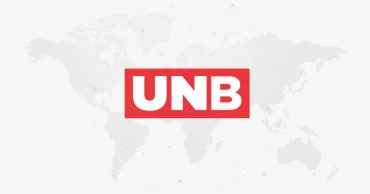
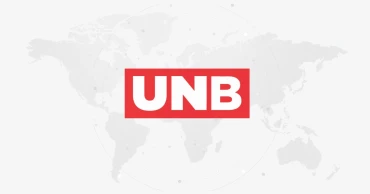
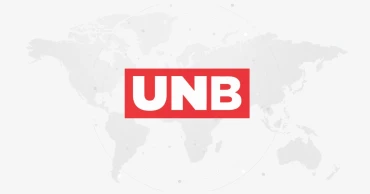
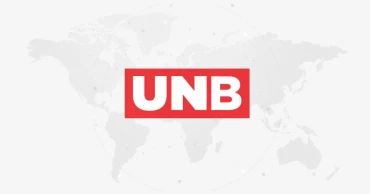
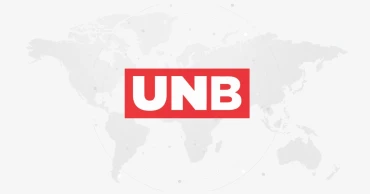
.jpg)
.jpg)






